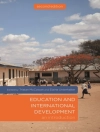Bold political elites and unique forms of social order brought the West to world dominance, but both are weakening dramatically in the contemporary period. The Endangered West makes the case for the continuation of Western power on as wide a global basis as is prudent. Is the survival of Western influence possible, or must we resign ourselves to its eventually being subordinated to more ruthless powers?
Higley lays out the main policy lines that successful leadership will have to follow to preserve and strengthen Western societies. These include avoiding futile involvements in the internal problems of non-Western countries and preserving sufficient social order to permit public and private organizations to function. The West will also have to find a way to regularize treatment of the growing number of those who lack employment; invent new forms of useful work for Westerners to perform; inhibit large in-migrations, and discourage population growth. Above all, the West must address the threat of environmental disaster.
There is no certain result in the struggle, but such measures will help to prevent a slide into despotism or a lapse into barbarism. Half the battle is to hold on to what the West has and, if possible, extend it. Progress will be made if elites and opinion leaders address societies’ problems more competently. If the West’s prestige is restored, world tensions may gradually subside, making meeting global problems more possible.
Over de auteur
John Higley is professor emeritus of government and sociology at the University of Texas at Austin, where he was chair of the Department of Government. He also chaired the Research Committee on Political Elites of the International Political Science Association.












